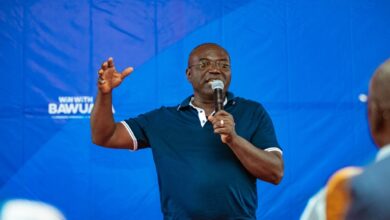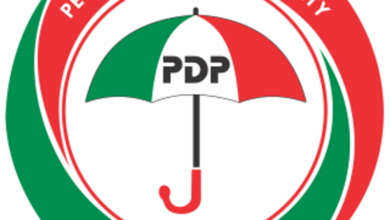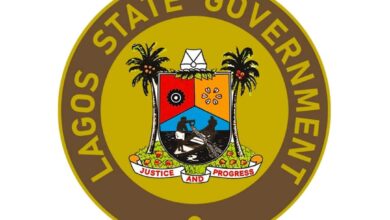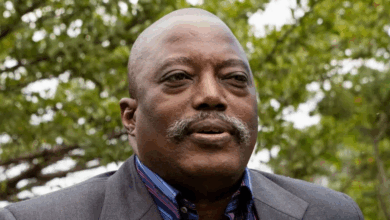Death toll in massive police raid on drug gang in Rio rises 119, Brazilian police say
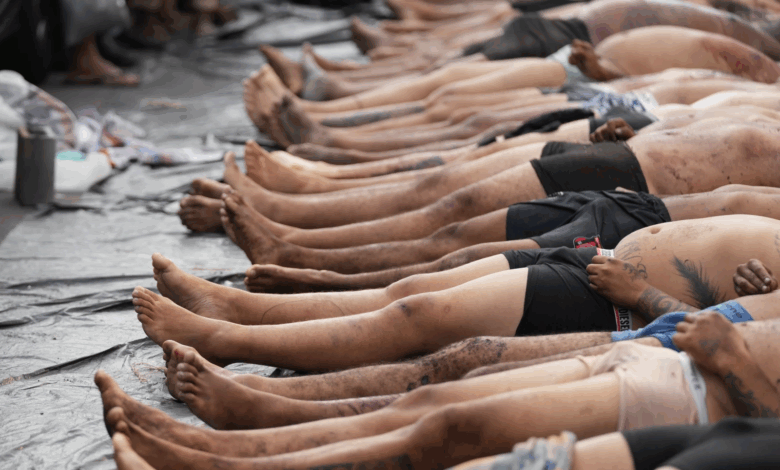
The death toll in a massive police raid on a notorious drug gang in Rio de Janeiro rose Wednesday to 119 killed, including four policemen, Brazilian police said.
The previous toll given by authorities was 60 suspected gang members and four policemen, following Tuesday’s operation by 2,500 police and soldiers that sparked clashes in two low-income neighbourhoods of the city.
The tally of suspects arrested stood at 113 — up from 81 cited previously, police spokesman Felipe Curi told a news conference.
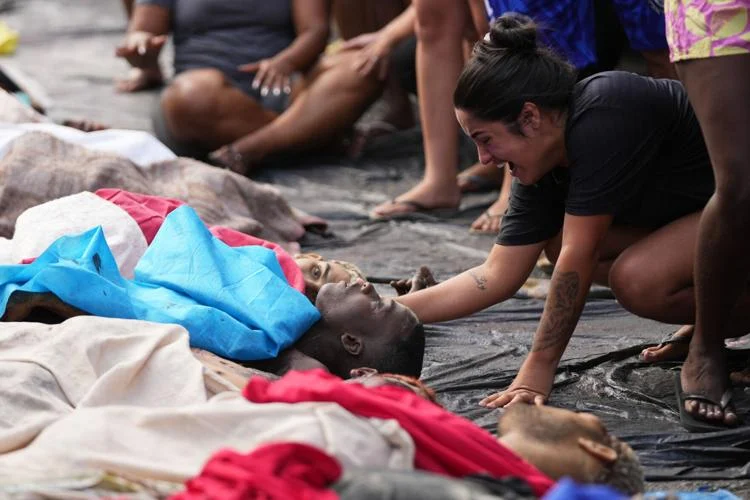
After a massive police raid on a notorious drug gang, residents of a Rio de Janeiro favela spent all night collecting bodies in trucks from inside and around their urban community and then laying them down in a central square.
By early morning Wednesday, at least 50 bodies of mostly young men without shirts lay on the ground in Penha, one of two sites targeted in Rio’s deadliest police operation, which is being decried by critics as Brazil’s latest example of the excessive use of force.
Hundreds of residents and family members of victims surrounded the bodies, some crying while others screamed “massacre” and later chanted “justice,” according to an AP journalist at the scene.
The raid Tuesday by 2,500 police and soldiers in helicopters, armoured vehicles and on foot left at least 64 people dead, including 60 suspected gang members and four policemen, according to state Gov. Claudio Castro and police.
Residents said they believed the tally was higher and that some of the bodies they were collecting were not yet likely to have been included. Many were found in a wooded ridge near the urban community, they said.
By late Wednesday morning, forensic authorities had retrieved the bodies. The state government did not immediately respond to a request for comment.
Local activist Raull Santiago said he was part of a team that found about 15 bodies before dawn.
“We saw executed people: shot in the back, shots to the head, stab wounds, people tied up. This level of brutality, the hatred spread – there’s no other way to describe it except as a massacre,” Santiago said.
Castro said on Tuesday that Rio was at war against “narco-terrorism,” a term that echoed the Trump administration in its campaign against drug smuggling in Latin America. Rio’s state government said that those who had been killed had resisted police action.
Rio has been the scene of lethal police raids for decades. In March 2005, some 29 people were killed in Rio’s Baixada Fluminense region, while in May 2021, 28 were killed in the Jacarezinho favela.
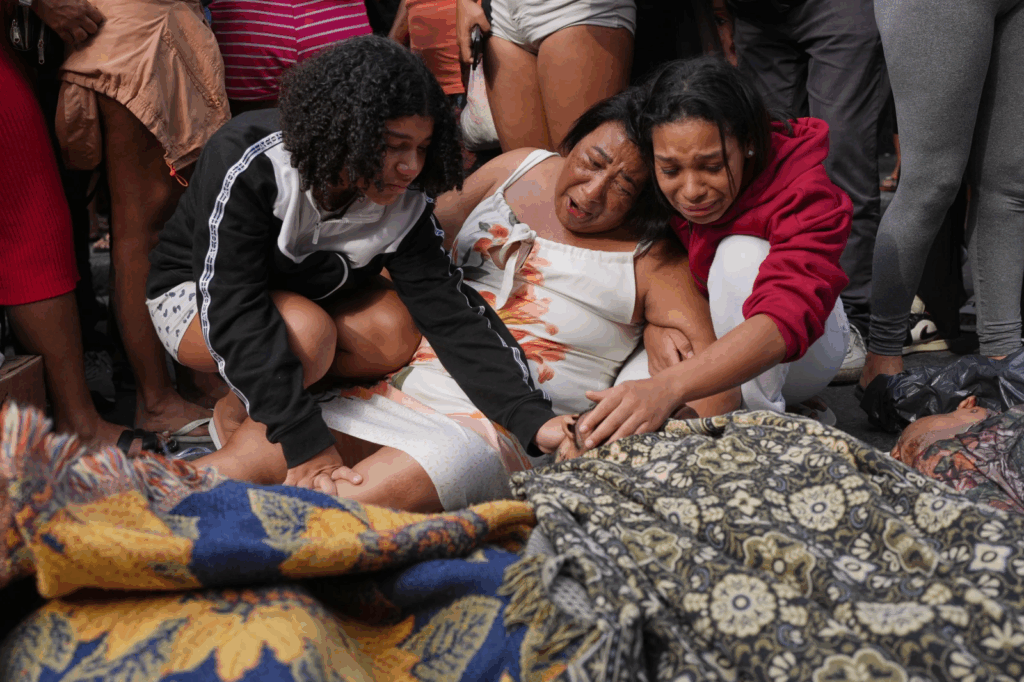
But the scale and lethality of Tuesday’s operation are unprecedented. Non-governmental organizations and the U.N. human rights body quickly raised concerns over the high number of reported fatalities and called for investigations.
The operation’s stated objectives were capturing leaders and limiting the territorial expansion of the Red Command criminal gang, which has increased its control over favelas in recent years.
Some 81 suspects were arrested, while 93 rifles and more than half a ton of drugs were seized, the state government said.
The police raid drew gunfire and other retaliation from gang members, causing scenes of chaos across the city. Schools in the affected areas shuttered, a local university cancelled classes, and roads were blocked with buses used as barricades.
Gang members allegedly targeted police with at least one drone. Rio de Janeiro’s state government shared a video on X of what appeared to show a drone firing a projectile from the sky.
Gov. Castro, from the conservative opposition Liberal Party, said Tuesday that Rio was “alone in this war.” He said the federal government should be providing more support to combat crime — in a swipe at the administration of leftist President Luiz Inácio Lula da Silva.
His comments were challenged by the Justice Ministry, which said it had responded to requests from Rio’s state government to deploy national forces in the state, renewing their presence 11 times.
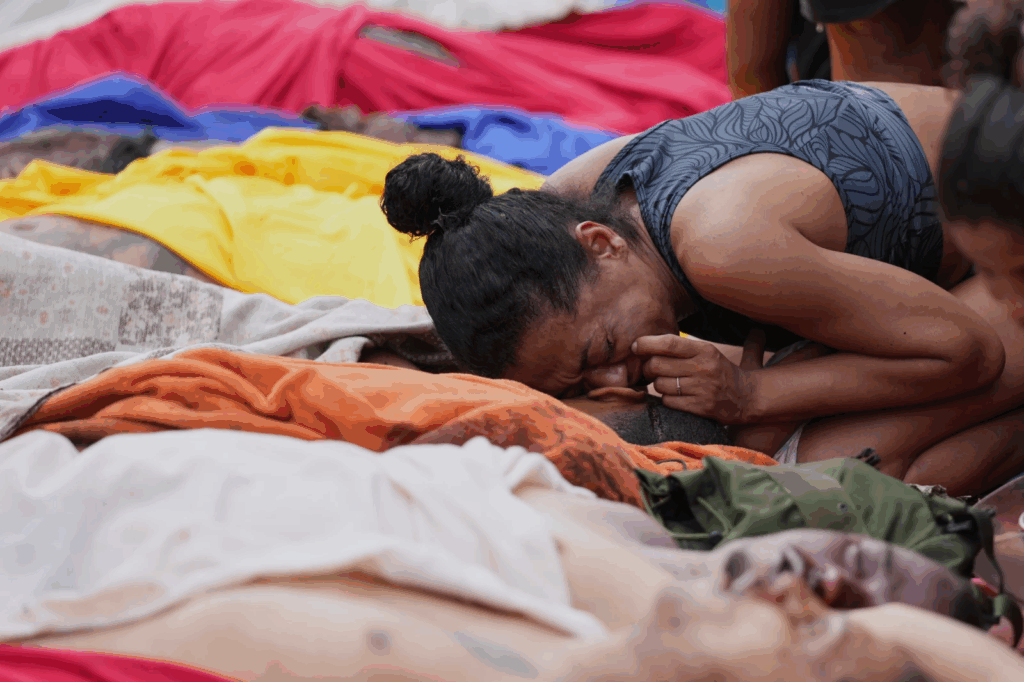
Gleisi Hoffmann, the Lula administration’s liaison with the parliament, agreed that more coordinated action was needed but pointed to a recent crackdown on money laundering as an example of the federal government’s action on organised crime.
Lula’s chief of staff, Rui Costa, requested an emergency meeting on Wednesday in Rio with local authorities and Justice Minister Ricardo Lewandowski.
Criminal gangs have expanded their presence across Brazil in recent years, including in the Amazon rainforest.
Filipe dos Anjos, secretary general of favela rights organisation FAFERJ, said that this kind of police operation doesn’t solve the problem, as those who were killed are easily replaceable.
“In about thirty days, organised crime will already be reorganised in the territory, doing what it always does: selling drugs, stealing cargo, collecting payments and fees,” he said.
“In terms of concrete results for the population, for society, this kind of operation achieves practically nothing,” he added.
DISCLAIMER: The Views, Comments, Opinions, Contributions and Statements made by Readers and Contributors on this platform do not necessarily represent the views or policy of Multimedia Group Limited.
DISCLAIMER: The Views, Comments, Opinions, Contributions and Statements made by Readers and Contributors on this platform do not necessarily represent the views or policy of Multimedia Group Limited.
Source link

